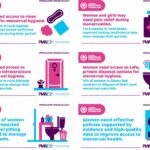eBook This – Evicted: Poverty and Profit in the American City is a nonfiction book written by Matthew Desmond that examines the impact of eviction on poverty in the United States.
Poverty is a prevalent issue in America, affecting millions of individuals and families.
In this article, we will explore the research and writings of Matthew Desmond, a renowned sociologist and author who has delved deeply into the subject of poverty in the United States.
Through his work, we will gain insight into the causes and possible solutions to this pressing problem.
Background of Matthew Desmond
Education and Career
Matthew Desmond is a Professor of Sociology at Princeton University. He holds a Ph.D. in Sociology from the University of Wisconsin-Madison.
Desmond’s research focuses on poverty, housing, racial inequality, and urban sociology.
Major Publications
Desmond is the author of the Pulitzer Prize-winning book Evicted: Poverty and Profit in the American City.
The book Evicted: Poverty and Profit in the American City highlights the lives of eight families in Milwaukee who struggle with eviction, homelessness, and poverty.
Desmond’s work has been widely recognized for shedding light on the devastating effects of the housing crisis on low-income Americans.
Overview of the Poverty Issue in America
Income Inequality
Income inequality is a significant contributor to poverty in the United States. The gap between the rich and the poor has widened over the past few decades, with the top 1% of earners taking home a disproportionate share of the nation’s wealth.
This disparity leaves many Americans struggling to make ends meet and unable to escape the cycle of poverty.
Unemployment and Underemployment
Unemployment and underemployment are other factors contributing to poverty in America.
While the overall unemployment rate may seem low, many people are underemployed, meaning they are working part-time or in low-wage jobs that do not provide a livable income.
These individuals often struggle to cover basic necessities, such as food, shelter, and healthcare.
The Working Poor
The term “working poor” refers to individuals who work but still live below the poverty line.
This group faces many challenges, such as low wages, limited job security, and inadequate access to resources that could help them escape poverty.
The working poor often must make difficult choices between paying for essentials like rent and food or addressing unexpected expenses, such as medical bills or car repairs.
Housing and Poverty
Evictions and Homelessness
Desmond’s work in Evicted highlights the devastating impact of evictions on low-income families.
Evictions often lead to homelessness, job loss, and disruptions in children’s education.
Additionally, having an eviction on one’s record can make it difficult to secure future housing, further perpetuating the cycle of poverty and instability.
Affordable Housing Crisis
The lack of affordable housing is a significant contributor to poverty in America.
High housing costs force many low-income families to spend a disproportionate amount of their income on rent, leaving them with little money for other necessities like food, healthcare, and transportation.
This situation often results in families living in substandard housing or overcrowded conditions, which can negatively impact their physical and mental health.
Systemic Causes of Poverty
Education Disparities
Educational disparities contribute to the cycle of poverty in America.
Low-income communities often have underfunded schools with fewer resources, which can limit the quality of education students receive.
Additionally, children living in poverty may face numerous obstacles, such as hunger, stress, and a lack of access to educational materials outside of school.
These factors can hinder academic achievement and reduce the likelihood of breaking free from poverty.
Racism and Discrimination
Racism and discrimination play a significant role in perpetuating poverty in America. People of color, particularly African Americans and Hispanics, are disproportionately affected by poverty due to historical and ongoing discrimination in areas such as housing, employment, and education.
This systemic inequality can limit opportunities for upward mobility and exacerbate existing economic disparities.
The Criminal Justice System
The criminal justice system in the United States has been widely criticized for its role in perpetuating poverty, particularly among communities of color.
High rates of incarceration, combined with the barriers faced by individuals with criminal records, can lead to a cycle of poverty and recidivism.
The financial burden of fines, fees, and court costs can also exacerbate poverty for those caught in the criminal justice system.
Solutions to Poverty
Government Initiatives
Government programs and initiatives, such as the Supplemental Nutrition Assistance Program (SNAP), Medicaid, and affordable housing programs, can play a crucial role in mitigating poverty.
However, these programs often face funding challenges and can be difficult to access for those who need them most.
Community Programs
Local community organizations and nonprofits can provide vital resources and support for individuals and families experiencing poverty.
These organizations often offer services such as food pantries, job training, and financial education programs.
By collaborating with government agencies and other stakeholders, community programs can help address the root causes of poverty and support those in need.
Personal Responsibility
While systemic issues are significant contributors to poverty, personal responsibility and individual choices also play a role.
Pursuing education, developing job skills, and making sound financial decisions can improve one’s chances of escaping poverty.
However, it is essential to acknowledge the systemic barriers that can limit opportunities for personal growth and success.
Conclusion
Poverty in America is a complex issue with multiple contributing factors. Through the work of Matthew Desmond, we can better understand the challenges faced by low-income Americans and the systemic causes of poverty.
By exploring potential solutions, such as government initiatives, community programs, and personal responsibility, we can work towards a more equitable society where all individuals have the opportunity to thrive.
Frequently Asked Questions (FAQs)
Who is Matthew Desmond?
Matthew Desmond is a sociologist, professor at Princeton University, and author of the Pulitzer Prize-winning book Evicted: Poverty and Profit in the American City.
What are the main causes of poverty in America?
The main causes of poverty in America include income inequality, unemployment and underemployment, lack of affordable housing, education disparities, racism and discrimination, and issues within the criminal justice system.
What is the relationship between housing and poverty?
Housing and poverty are closely related, as the lack of affordable housing can force low-income families to spend a significant portion of their income on rent, leaving them with little money for other necessities.
Evictions can also lead to homelessness and further destabilize the lives of those living in poverty.
How can poverty be addressed?
Addressing poverty requires a multifaceted approach, including government initiatives, community programs, and personal responsibility.
By tackling the systemic issues that contribute to poverty, such as education disparities, racism, and affordable housing shortages, and by providing resources and support to those in need, it is possible to make strides towards reducing poverty in America.
What role does education play in addressing poverty?
Education plays a critical role in addressing poverty by providing individuals with the knowledge and skills necessary for upward mobility and financial stability.
Ensuring that all students, regardless of their socioeconomic background, have access to quality education and resources is essential in breaking the cycle of poverty.







